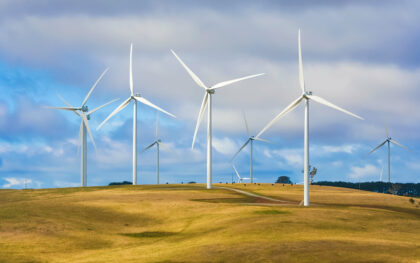Bioresources
Overall Course Objectives
The overall objective of the course is to provide the students with a balanced ability to evaluate potential benefits and drawbacks associated with the use of bioresources for various needs in society. Bioresources are natural organic materials (i.e. materials derived from living things) which may be used in society for multiple purposes: to produce feed for animals, food for humans, feedstock (e.g. timber, pulp, biomaterials) as well as energy. However, the supply and management of bioresources can result in significant environmental impacts, primarily because of the demand for arable land and forest products leads to enormous pressures on the natural environment, ultimately incurring losses of natural biomes such as natural forest. Additional impacts derive from the management of these bioresources in society, for example in relation to processing, transport, and handling of the biomass residuals. With focus on the environment, the course provides an overview of bioresource characteristics and potential uses, highlighting potential competition and the connection with land-use change impacts. Further, the course applies accounting of greenhouse gases (GHG) as a tool to assess the climate impacts from the entire bioresource life-cycle.
Learning Objectives
- Identify key definitions and terminology in relation to bioresources
- Explain how bioresources are generated in nature (stocks, growth, C, N flows)
- Utilize the main characteristics of bioresources (e.g. availability, composition, uses, typical flows in society) to identify management and utilization options for bioresources
- Identify critical environmental consequences associated with utilization of bioresources
- Quantify environmental implications related to land-use changes, particularly carbon emissions
- Explain basic principles of carbon footprinting/greenhouse gas accounting applied to bioresources
- Compare climate impacts from selected bioresource conversion pathways by applying GHG accounting, including land-use change impacts
- Explain ecosystem services and key types of indicators in relation to bioresources (e.g. biodiversity)
- Assess different uses of specific bioresources in society based on their characteristics, availability, related impacts and GHG accounting
Course Content
The course consists of 11 modules of lectures, each providing theoretical background and methodological tools for consistent assessment of bioresources:
1. Bioresources: concepts, terminology, relevant legislation
2. Biomass characterization
3. Biomass synthesis
4. Biomass industry and alternative uses
5. Biomass conversion to useful products
6. Residue application on land
7. Land use changes
8. GHG accounting
9. Ecosystem services and functions
10. Other impacts related to biomass utilisation
11. Industry and commercial perspective
The tools gained throughout the course are in groups applied in an assessment addressing a specific bioresource, which is assigned at the beginning of the course.
Teaching Method
Lectures, exercises, group work (4-5 students), assignments.
Faculty
Remarks
Please contact the teacher for information on whether this course gives the student the opportunity to prepare a project that may participate in DTU´s Study Conference on sustainability, climate technology, and the environment (GRØN DYST). More info http://www.groendyst.dtu.dk/english






